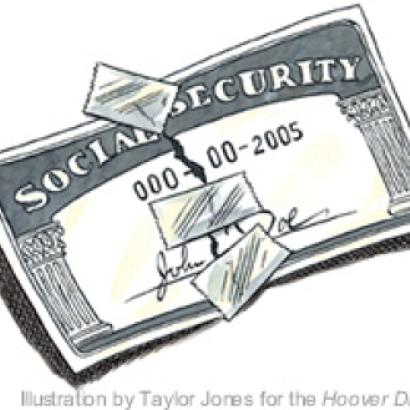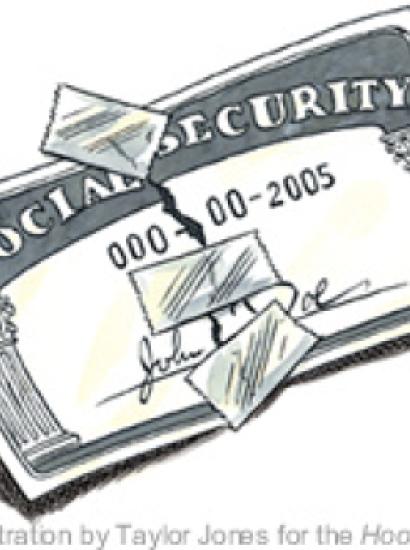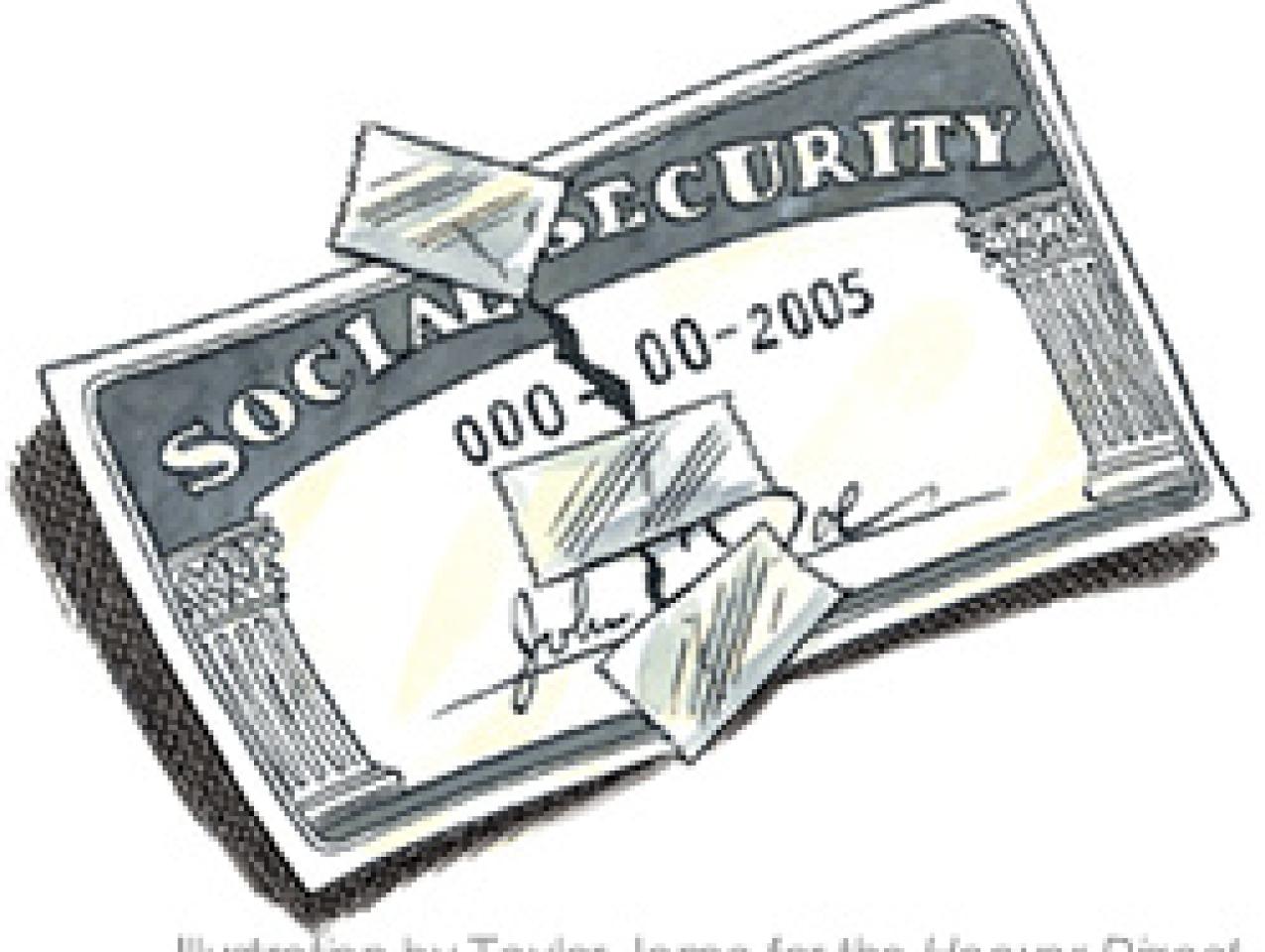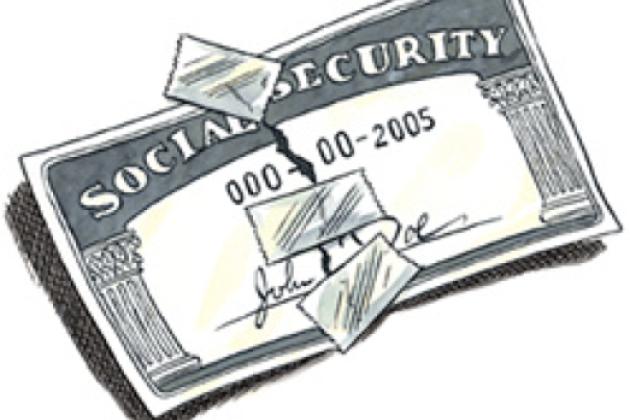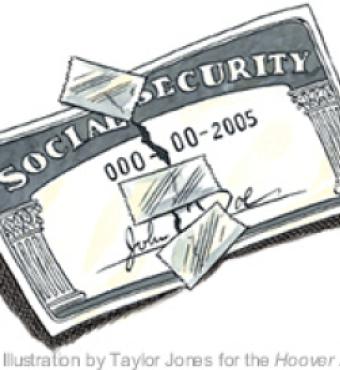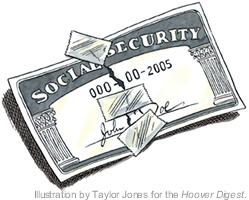- Budget & Spending
- Economics
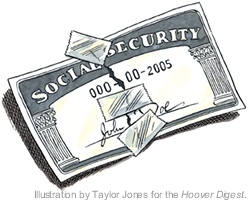
In the current debate on Social Security reform, President Bush has refused to rule out a tax increase on those who earn more than $90,000 a year. That’s the current maximum earned income on which Americans pay Social Security (FICA) taxes. Republican senator Lindsey Graham of South Carolina has suggested making all earned income up to $200,000 taxable. Such a tax is a bad idea. There is not only a strong economic case against it but also a strong moral one.
First, the economics. Increasing the amount of taxed income would massively raise marginal tax rates for many of the most productive people. The marginal tax rate on those whose income is between $90,000 and $200,000 would increase by 6.2 percentage points for employees and by a whopping 12.4 percentage points for the self-employed. (Part of the 6.2 points paid by the employer would be borne by the employee, but that’s a longer story.) Most people with earned income between $90,000 and $200,000 face a marginal tax rate of 31 to 40.5 percent. They are in a 25 to 33 percent federal income tax bracket. Their state tax bracket, adjusted for the deductibility of state taxes on their federal tax form, is about 4.5 to 6 percent. They also pay a 1.45 percent Medicare tax (2.9 percent for the self-employed) on all earnings. Thus raising the cap would increase taxes on those affected by up to one-fifth of their current marginal tax rate.
A salaried worker making $200,000 a year would pay $6,820 more in taxes every year, whereas a self-employed worker would pay $13,640 more. This would be the biggest tax increase on high-income people since President Clinton’s and, for many people, would be a bigger tax increase than Clinton’s. A rise in marginal tax rates would discourage work. The person previously in the 40.5 percent bracket would keep only 53.3 cents of an additional dollar earned, down from 59.5 cents before the tax increase. People would also find ways of being paid other than by taxable income, such as by receiving a company car.
Second, the morality. A tax increase on people who already get a lousy deal from Social Security is wrong. Presumably, benefits for higher-income taxpayers would not rise in line with taxes. Otherwise, why raise the tax in the first place? The purpose of the tax is to generate more revenue to solve the long-term funding problem, which would not occur if the government raised Social Security benefits dollar for dollar. Furthermore, even if Bush planned to raise benefits, that’s little comfort. Many people are happy to save their own money for retirement. Currently, a few million Americans can look forward every year to reaching the existing threshold ($90,000 in 2005) and knowing that the feds will keep their FICA hands off any additional income. We should be free to save that money or spend it as we wish. What a tragedy it would be if a president who believes in the “ownership society” ended up further violating citizens’ rights to their own income.








